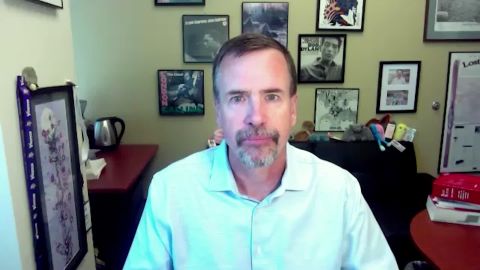Read Transcript EXPAND
CHRISTIANE AMANPOUR: Just tell me a little bit how you came to sort of, you know, internalize that and use that as the name.
DAWN PORTER, DIRECTOR, “JOHN LEWIS; GOOD TROUBLE”: You know, that is what the congressman is known for, and I just loved the way that he took that very familiar phrase and turned it into a rallying cry. You know, and it certainly spoke to one of the things I was trying to accomplish with the movie, which is to not only hearken back to his earliest days but then to also remind ourselves, remind everyone, that he is still getting in good trouble. You know, he’s been arrested five times since he’s been a sitting congressman, and I think it’s a necessary reminder that politics is not a spectator sport, it’s a — we live in a participatory democracy, and that’s what John wants to reminds us of.
AMANPOUR: Well, let me just ask you because clearly, you know, he’s 80 years old. I said, he’s a 17-term congressman. He’s not well and he’s not doing a whole lot of interviews, if any, for this program, for this documentary. But he did come out and he was shown around Black Lives Matter Plaza outside the White House when that was, you know, named — when the name there was changed. And so, he’s been out and about and he’s looking at it. You know, I said that the commentary really around this documentary is that it’s absolutely the documentary for our time. I mean, you didn’t obviously make it knowing that what was happening — what is happening now was going to be happening. Talk to me about the influence you think this could have now.
PORTER: You know, I’m so glad that you referenced the fact that he went and he made the trip down to the Black Lives Matter art installation on black lives matter way, because I think that that says a lot about the congressman’s priorities. You know, when we started making this film — I come from a political science background, like that’s always been my interest, and I was wondering if I was going to have to make the argument that protests matter, that protests are still a useful tool for our democracy. And so, certainly, that has changed. I think everyone is convinced of the necessity and the effectiveness of peaceful protest. But I think the film is also resonating in a different way. You know, we open the film with him saying he’s worried for our democracy, and that was an idea I really wanted to lean into. And, you know, I’m a big fan of Petra Costa’s beautiful documentary that you were just speaking with her about. And I love the idea of people perhaps watching those together and thinking that — something that we thought was impossible.
About This Episode EXPAND
Christiane speaks with Petra Costa about the state of her home country Brazil. She also speaks with Dawn Porter about civil rights activist John Lewis. Hari Sreenivasan speaks with Dr. Sean O’Leary about how children are affected by coronavirus.
LEARN MORE


